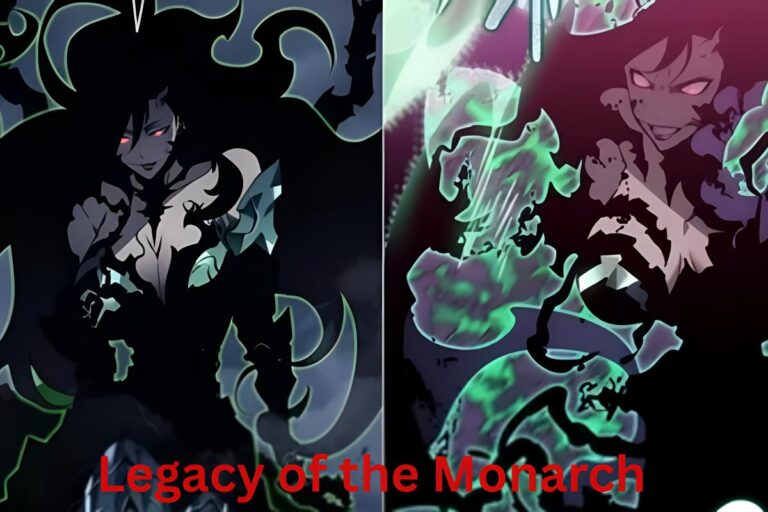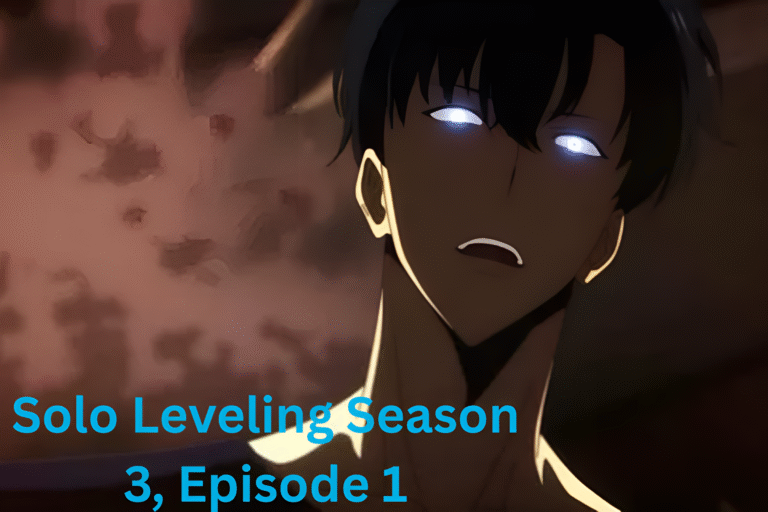Batoto Manga Reader – History, Shutdown, Clones & the Best Safe Alternatives
What happened to Batoto – the manga site that fans still can’t forget? If you love to read manga, then you have probably heard the name of “Batoto”. This name is well-known in the manga community. For comic lovers, Batoto was more than just a manga reader.
The Batoto App was a special place where stories were shared with respect, love and even live chat. It offered high-quality fan scanlations and supported the scanlation community. There were no spammy ads that waste your time – just clean and respectful comic reading.
Whether you are an old fan of Batoto or hearing about it for the first time, our site will bring back the feeling of its golden era.
We remember its popularity, honour its strong legacy, and help manga fans find safe and ad-free bato.to alternatives inspired by the original mission.
What is Batoto?
Batoto was a beloved online platform for manga readers, offering free access to comics. People loved it for fan-translated manga and original content. It gave credit to the high-quality scanlation groups.
Batoto became famous because it was different from other manga sites. It did not steal content from others – instead, it always respected the fans and the translators who worked hard on the manga.
Its community-first approach and user-friendly features made it stand out. Botato’s goal was not just to make – it focused on making manga accessible without harming the work of translators or creators.
Even though Batoto shut down in 2018, its name still lives on – and here, our mission is to continue what it stood for.
Featured Posts
 Solo Leveling Season 3 Episode 3 “The Monarchs Awaken” - The return of the Monarchs changes everything. Solo Leveling Season 3 Episode 3 launches readers into an overwhelming clash of […]
Solo Leveling Season 3 Episode 3 “The Monarchs Awaken” - The return of the Monarchs changes everything. Solo Leveling Season 3 Episode 3 launches readers into an overwhelming clash of […] Solo Leveling Season 3 Episode 2: “Legacy of the Monarch” - “Solo Leveling Season 3 Episode 2” is an explosive continuation of the beloved manhwa series, bringing readers back into the […]
Solo Leveling Season 3 Episode 2: “Legacy of the Monarch” - “Solo Leveling Season 3 Episode 2” is an explosive continuation of the beloved manhwa series, bringing readers back into the […] Solo Leveling Season 3 Episode 1: “A New Dawn” - The long-anticipated return of the Solo Leveling universe is finally here, and fans couldn’t be more thrilled. Solo Leveling Season […]
Solo Leveling Season 3 Episode 1: “A New Dawn” - The long-anticipated return of the Solo Leveling universe is finally here, and fans couldn’t be more thrilled. Solo Leveling Season […]Key Features of Batoto
Batoto was different from other manga sites because of its fan-friendly features and rules, which were strictly follow by the manga community.
- High-Quality Fan-Translated Manga: Batoto was known for hosting accurate, clean and high-quality scanlations that were made by real manga fans. Each chapter of every comic was carefully translated and uploaded by trusted scanlation groups and communities. There were no chance of rushed and low-quality content.
- Full Credit to Scanlation Groups: One of the best things about the Batoto platform was how they respect their scanlation team. Each group had full access to what other team members uploaded. They were always given credit for their work and could update, remove, or manage their manga anytime they wanted. This made scanlators and contributors feel safe, valued and respected.
- Ad-Free Experience: Unlike other manga sites full of annoying ads and pop-ups that slow things down, Batoto kept everything clean and user-friendly. There were no banners or auto-playing games. Instead, it focused on giving readers a smooth and peaceful reading experience. This made comic reading more engaging and enjoyable. This feature of Batoto grabbed the attention of millions of readers.
- User Account System: They customized their platform so users could create accounts to follow manga series and join discussions. This feature made it easy to build relationships between readers through chat and comments.
- Manage Update Notifications: After creating an account and logging in, you received alerts when new chapters of your favorite series were uploaded, making sure you never missed an update.
- Advanced Reader Settings: Batoto gave freedom to their readers to choose how they wanted to read. This platform was uniquely designed so you could easily read left-to-right or right-to-left, depending on your preference. You could also bookmark your favorite chapters for quick access later. It even allowed users to adjust the page layout for easier reading. These helpful features made the reading experience more personal and enjoyable for everyone.
- Scanlation Group Filters: If a manga had differenet versions by differenet groups, readers could choose the one they liked best. This gave them more control and options.
- No Duplicate Uploads: Batoto had strict rules to avoid messy content. Only one clear version of each manga chapter was allowed, keeping the site organized and easy to use.
- Active Community and Forums: Batoto had a strong and friendly community. Fans and scanlators often talked on forums, give feedback and help each other.
A Brief History of Batoto
Batoto was started in 2011 by a manga fan named Grumpy. They aimed to create something different from other manga sites. Before the Batoto platform, most manga sites were full of annoying ads, stolen content, and low-quality scans. But Batoto changed the way people saw manga sites. That’s why it’s still popular among manga readers today.
People trusted Batoto because it supported scanlation groups and gave credit to their working members and translators. Because of its quality content, Batoto made fans feel respectful, safe, and trustworthy.
For manga lovers, Batoto was not just a platform – it was a place where both fans and scanlators felt valued.
The Shut Down of Batoto – Why it Closed and What Come Next
Unfortunately, the original Batoto platform was shut down in January 2018. It was closed because the owner was not making any profit. Running such a big site took a lot of time, efforts, and money.
One of the major reasons Batoto was shut down was that many people were copying its content and posting it on their manga sites. They run ads and made money from stolen content.
Instead of supporting the real, high-quality site, other were earning from Batoto’s hard work. This made the owner feel like their hard work, time, and efforts were being misused. That’s why Batoto Platform was Shut down – to protect the scanlation community and stop others from stealing their content.
When this heart-breaking news came out, Batoto fans tried to keep their spirit alive. That’s why MangaDex and few other platforms were created by people who want to fulfil Batoto’s mission.
Some of these new sites may try to carry on what Batoto started, but no one can replace it.
Our site the-batoto.com, is also working hard to carry forward the Batoto’s mission. Like Batoto, it has clean layout and original content.
Batoto Clones and Current Status
After the original Batoto platform shut down of in 2018, many clone sites were appeared like Bato.to, Batoto.com, and others. These sites may look similar in design, but they are not real Batoto.
Some of these clone sites, may let you read manga, but you should be very careful. Because many of them filled with spammy ads, hidden redirect pages, and even malware.
They also do not follow the ethical rules of original Batoto platform. In many causes they may stole content from other sites without their permission.
So, is Batoto safe today?
Unfortunately, no – the original site is no longer online. Today, most of the clones try to replace it cannot be fully trusted.
That’s why we created the the-batoto.com – a fan-made site build to honor the Batoto’s legacy. Our site help manga readers find safe, clean, and ad-free Batoto alternatives. We do not host the manga by ourself, but we guide you with trusted information, helpful resources, and real community care – just like the original Batoto once did.
What You Will Find on This Website – Inspired by Batoto’s Legacy
We created this site to help you explore manga safely and confidently. Here’s what you can expect:
- Helpful Guides on How to Read Manga Online
Here, you will find out how to read manga online like a pro – from reading in the right direction to saving where you left off.
- Tips to Stay Safe from Harmful Ads and Fake Clones
We will show you how to avoid fake manga sites, pop-up ads, and hidden malware so you can enjoy reading safely without putting your device at risk.
- In Comparison with Batoto and Other Manga Readers
Find out how Batoto stood out from the other manga sites, and see how the platforms today come closest in terms of quality, features, and user experience.
- Update on Scanlation Groups, Platforms, and Community News
Stay informed about your favorite scanlation terms, new manga platforms, and the latest news from the manga fan community.
- Manga Discovery Guides to Help You Find New Favorites
Find manga picked just for you based on genre, mood, or style – a fun way to discover your next favorite series.
Why We Created This Site
Batoto may be gone, but its value still matter – because millions of people were truly satisfied with this platform. We build this website to alive the royal legacy of this platform and to give honor everything it stood for.
We build this website to keep Batoto’s strong alive and to honor everything it stood for. Its main goal was to show respect to scanlators and we carry that forward. We also want to educate new Manga readers who never got the chance to experience the original Batoto. Through our article, tips, and reviews we help people avoid unsafe sites and discover better ways to enjoy their favorite comic series.
At its core, this site is especially design for the Batoto community – old fans, new readers, and everyone who believed in ethical manga sharing.
Note: We are not here to replace Batoto – we are here to keep its spirit alive.
Frequently Asked Questions About Batoto
No, the original platform of Batoto was shut down in January 2018. Any website you see now using Batoto name is not run by actual team of batoto.
Batoto was closed because many other websites were copying its content. When the original creator saw this, they felt that their time, money, and hard work being wasted. Despite offering high-quality content to readers, they could not earn any profit. That’s why such a legendary platform eventually had to close.
This platform earned a lot of respect because of its strong community rules. it gave credit to scanlation community, respected fan translators, and offered a clean and ad-free experience – something rare at the time.
Batoto was operated in grey area. While it does not host officially licensed manga, it only allowed fan-made scanlations uploaded by the groups themselves. It also respected takedown requests and did not support privacy. That’s why many fans saw it as one of the most ethical manga platforms at the time – even if it was not fully legal.
There’s no sign that original Batoto will come back but with the help of fans and sites like our, its legacy lives on.
Not always. Many clone sites contain pop-up ads, redirect pages, and even malwares. It’s best to stay cautious and avoid giving personal data.
Here we mention some popular alternatives of Batoto:
- MangaDex
- MangaMutiny
- Hachirumi
Each platform has its own rules. Our site helps you find the safest and most respectful alternative of Batoto.
No, the-batoto.com does not host manga. It is a fan run informational site build to share guides, safe alternatives, and preserve Batoto’s spirit in a safe way.
No, the bato.tois a clone site that appeared after the shutdown. It may look similar but is not affiliated with the original Batoto.
Call to Action – Be Part of the Batoto Legacy
Batoto may be gone, but its heart still beats through fans like you.
If you believe in ethical manga reading, safe platforms, and respect for creators. Then you are at the right place.
- Explore our guides and articles
- Saty informed with safe reading tips.
- Bookmark the-batoto.com to return anything to your favorite comic
- Join the community and help keep Batoto’s legacy alive
Final Words About Batoto
Batoto was not just a website – it was the place where people love to spend their time by reading their favorite comics. It’s a site where fans, translator, and stories came together in harmony.
While the original website may no longer exist, its value still matters today.
Here at the-batoto.com, we have made it our mission to carry the torch – to inform, protect, and celebrate everything Batoto stood for.
So, whether you are a long-time fan or just discovering Batoto’s name for the first time – welcome. You are the part of something special.
